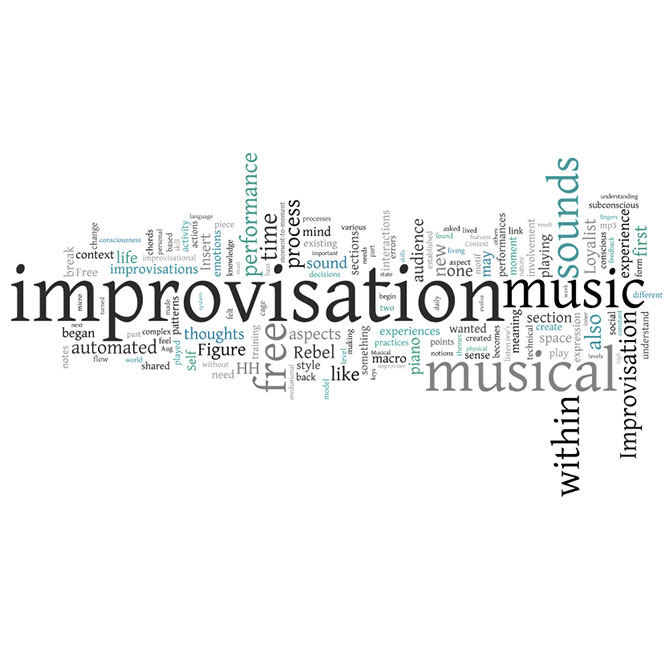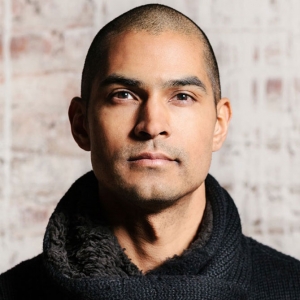
So Why is Improvisation so Important?
Jeffrey Zeigler
Like so many classically trained cellists, improvising was never something that I felt very comfortable trying. And although most of my professional life has been in the world of new music, improvisation was not something that I had explored in depth until a few years ago.
My improvisational journey began literally the day after my final day with the Kronos Quartet when I played a concert at The Stone in New York with John Zorn and several others on one of his monthly improv nights. For those of you who have never been to one, the way that these concerts work is that everyone sits downstairs in the basement and one by one people decide in the moment who plays with whom. It can be duos, trios or quartets—you literally have no idea what you are playing or whom you are playing with until two seconds before walking upstairs. Everyone then comes together at the end to play in one giant improv. I didn’t realize it at the time, but I was taking my first step into a new world that, over time, has increasingly become a large part of my performing life.
TALKING AND LISTENING
A few days after the Stone show, Zorn and I grabbed some sushi together. One of the questions he had for me was, being fully aware of my rookie status as an improvisor, how I felt about improvising a few nights before. I responded by saying that I had made an interesting discovery about myself. I had learned that when I improvised with people I didn’t know, my musical behavior was no different than the conversation that I would have had if I were meeting people for the first time. I am much better in smaller groups, but when the groups get larger I tend to listen more than talk. This was exactly what happened when I was improvising.
Some time later I put together a concert as part of VisionIntoArt’s Ferus Festival at the Stone. The group was comprised of Vijay Iyer, Scott Colley and Satoshi Takeshi. These were all individuals that I had long admired and I was thrilled when everyone agreed to play. However, about two weeks before the show, I began to have a bit of a panic. After all, these are some of the best improvisers around. What was I thinking putting myself on stage with these master improvisors?
When we began playing together it sounded…GREAT! At that moment I knew what I needed to do. I would just lay back and let everyone else do they’re thing. They will sound great and I can just ride on their coat tails. What a great plan!
While we were playing, at some point I made a very minute change in what I was doing…immediately the entire group made a shift in the texture. Oh no—they are actually listening to me too! My plan was ruined.
I was literally shocked by the heightened level that Vijay, Scott and Satoshi were listening at. I have spent most of my career as a chamber musician playing at most of the major concert halls around the world. I had never played with musicians that were that closely tuned in to the nuances of everyone’s playing. Without a doubt this level of engagement would tremendously benefit any musician or chamber group regardless of what repertoire they were playing.
Over the years I have found that the best improvisors are also the very best listeners.
MAKE A PLAN. BUT BE FLEXIBLE: PLANS OFTEN CHANGE IN THE HEAT OF THE MOMENT
Part of the reason why classical musicians don’t want to improvise is that we are conditioned to fear making mistakes. Our job is to develop an interpretation with integrity and then attempt to execute it to perfection whenever we perform. When this works, the performance can be sublime. In our lessons we are told to vibrate on every note, to play the exact same bowings all of the time, not to play the wrong articulation, not to put the accents in the wrong place and to absolutely only play the correct notes. When we improvise, which ones are the correct notes?!
I am not saying that there are no mistakes when you improvise. But I have discovered over the years that often things that may immediately feel like they might be mistakes are actually opportunities to allow the music to evolve.
Several years ago I formed a trio with the German pianist Hauschka and the Finnish drummer Samuli Kosminen. We call ourselves H K Z. I love playing in this group. Hauschka and Samuli are both brilliant musicians and master improvisors. I have learned a great deal working with those two. Whenever we play together we always make a plan. We have yet to actually stick to the plan.
Last Fall we played two concerts in Berlin at Radialsystem V. The shows were packed and went very well. In our sound checks, after we had checked all of our microphones and effects units, we would generally just begin playing together in order to feel each other out. Often these improvisations are the best because you have zero expectations since it isn’t the actual concert. For this reason, it is not uncommon to stumble upon perhaps the most magical moment that you could ever imagine.
But then what do you do next? Do you try to recreate the same magic in the concert? Sounds like a reasonable idea. But I will tell you this, every single time that I have ever tried to recreate a magical moment in a concert it has fallen flat…every…single…time. Why does that happen?
It is just like taking a walk through the woods. You are only following your imagination and then unexpectedly you find a clearing that leads to the most incredible view you had ever seen. The next day you come back and make your way to the same spot. But this time you go more directly because you know where you are going. It is still nice, but the magic of stumbling upon that moment will never be the same. A mentor of mine once told me that “Life never turns out the way you planned. But it always works out.” I have found this definitely to be true.
After several decades of exploring the outer limits of music, I have thoroughly enjoyed returning to my classical roots teaching at Mannes College the New School for Music. My students are very talented and I enjoy exploring the possibilities of the cello with them. After spending so many years drawing outside of the lines, I definitely see the benefits for students to be able to explore this area of playing. It heightens one’s level of listening and teaches one all of the skills of chamber music. It also gives performers the ability to successfully turn any unexpected moment on stage into an opportunity for success.
When I reflect upon my studies, this approach does not actually clash with my training as much as it would seem. Paul Katz taught me a great deal about the cello and musicianship. However, I think the greatest gift that he gave me was the importance of listening. In addition to leading to artistic integrity, it also enables one to engage fully in all levels of music making whether you are an orchestral musician, soloist or chamber musician. When I was studying with János Starker he would tell us that we should have several different approaches already mapped out and that we should not stick to only one way of playing. This way whenever you perform you have choices. Listen to yourself and to others. Always make a plan, but be flexible.
Subjects: Beyond the Traditional
